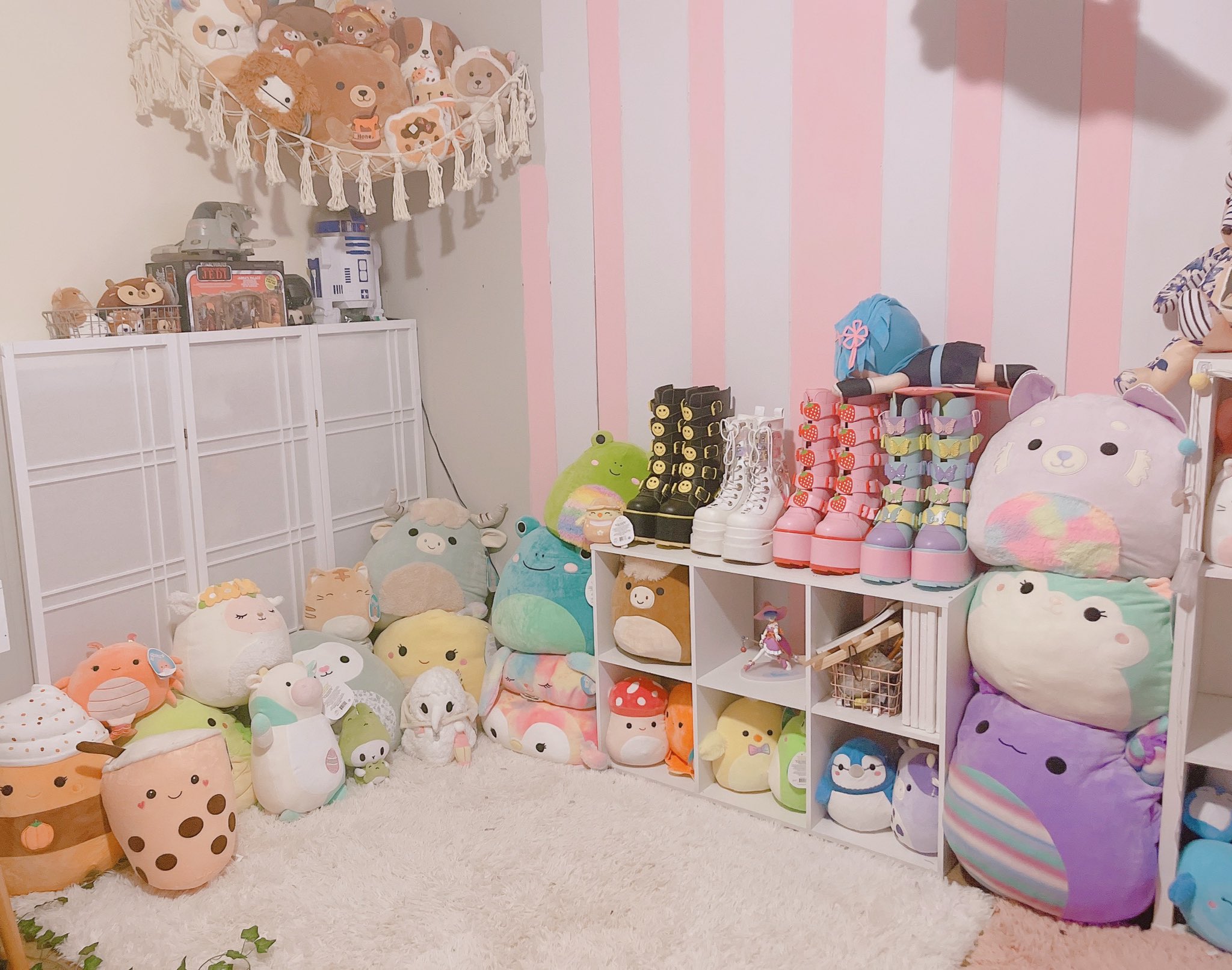When you spend time outside, especially for work, it's very important to know about the creatures that might be a problem. Some animals, like certain spiders and snakes, carry a kind of natural defense that can make you feel unwell if they bite or sting. This information is for everyone who might come across these things in their daily activities, helping you stay safe and sound, you know.
We often think about the big dangers, but even tiny things can cause a lot of trouble. Things like mosquitos, which are really small, can spread illnesses that affect many people. And there are other small creatures, too, like ticks and bed bugs, that can cause issues you really want to avoid, so.
It's not just animals, either. Sometimes, things we can't see or smell, like certain chemicals, can also hurt you if you're around them too much. Knowing what to look out for and what to do if something happens is a big part of keeping yourself well when you are out and about, as a matter of fact.
Table of Contents
- Understanding the Tiny Dangers
- Hidden Threats in the Air and Around Us
- Other Creatures and Chemical Concerns
- Staying Prepared for the Unexpected
Understanding the Tiny Dangers
For those who work outdoors, or really anyone spending time in natural settings, there's a possibility of running into spiders that can cause a problem if they bite. These little creatures, though small, can deliver a painful sting, and it's quite important to be aware of them. Knowing where they like to hang out can help you steer clear, you know.
Some of the more commonly talked about spiders that can cause a fuss include the black widow and the brown recluse. These particular spiders are found in various places, and their bites can lead to discomfort or even more serious health concerns. It’s not about being scared, but rather being informed about what to look out for, so.
When thinking about these creatures, it’s helpful to understand that their bites are a defense mechanism. They are not looking for trouble, but if they feel threatened, they might react. That’s why keeping a respectful distance and being mindful of your surroundings is a smart approach, as a matter of fact.
What Should You Do if a Venomous Spider Bites You?
If someone experiences a bite from a spider that might be venomous, the immediate steps you take can make a real difference. The first thing is to try and stay calm. Panicking won't help the situation, and keeping a clear head lets you think about what needs to happen next, basically.
It's a good idea to clean the area of the bite with some soap and water. This helps keep things clean and reduces the chance of other problems. Applying a cool pack or ice wrapped in a cloth to the spot can also help with any swelling or discomfort that might come up, in a way.
Seeking medical advice is pretty much always a good call when dealing with a bite from a spider that carries a natural defense. A healthcare professional can assess the situation, give you the best advice, and make sure you get any necessary care. They can tell you what signs to look for and when to be more concerned, so.
How Can You Spot a Venomous Snake?
For outdoor workers, or anyone spending time in places where snakes live, it's quite helpful to have some general knowledge about these reptiles. Some snakes, too, have a natural defense that can be a problem if they bite. Understanding a bit about them can help you avoid unwelcome encounters, you know.
If someone gets bitten by a snake that might be venomous, knowing what to do right away is really important. The immediate steps are pretty similar to a spider bite: try to stay calm and get medical help as quickly as possible. Don't try to catch the snake or do anything that might put you in more danger, honestly.
There are certain regions, like Guatemala and Belize, where a good number of snake species that carry a natural defense make their homes. These places have about eighteen different kinds, including coral snakes, various pit vipers, and the neotropical rattlesnake. Bites from some of these can pose a risk for serious health issues, so it's good to be aware if you are in those areas, as a matter of fact.
The key here is not to become an expert on every snake species, but to know that if you see one, it's best to give it space. If a bite happens, getting professional medical attention without delay is the most important thing you can do. They can provide the right care and guidance, you know.
Hidden Threats in the Air and Around Us
Beyond creatures that bite or sting, there are other types of dangers that can affect people. Sometimes, these threats are not visible or easy to detect, making them especially tricky to deal with. Understanding these less obvious risks is a big part of staying safe, basically.
For instance, there are certain chemical substances that are incredibly potent, like what's known as VX. This is a type of nerve agent, and it's considered one of the most powerful chemical warfare agents known. It's really quite concerning because it has no taste and no smell, making it very hard to detect without special equipment, so.
The impact of being exposed to such a substance can be very serious. The signs and what happens to you depend a lot on how much of it you were around and for how long. Exposure to VX, for example, can lead to death in just a few minutes, which is why it's something people take very seriously, you know.
It's a reminder that not all dangers come with teeth or stingers. Some are silent and unseen, making awareness and proper safety protocols even more critical. Knowing about these hidden threats helps us understand the full picture of what it means to be safe in different environments, as a matter of fact.
Are Mosquitoes Really the Most Dangerous?
When we talk about animals that cause harm to humans, it might surprise some people to learn that the mosquito is often called the world's deadliest animal. It's not because of a bite that causes immediate pain, but because of what these tiny insects can carry and spread, you know.
Mosquitoes are known for spreading a whole range of diseases that affect millions of people across the globe. We're talking about illnesses like malaria, dengue fever, West Nile virus, yellow fever, Zika, chikungunya, and lymphatic filariasis. These diseases can cause severe illness and, tragically, lead to many deaths each year, so.
The sheer number of people affected by mosquito-borne diseases makes them a huge public health concern. Even though they are so small, their ability to transmit these serious conditions from person to person, or from animals to people, gives them a really significant impact on human health, basically.
So, while a snake bite or spider sting might be more dramatic, the consistent and widespread danger posed by mosquitoes is something that demands a lot of attention. Protecting ourselves from mosquito bites is a simple but very effective way to guard against these widespread illnesses, you know.
What About Nerve Agents and Other Unseen Hazards?
Beyond living creatures, there are other types of dangers that are not always obvious. These include things like exposure to certain toxins, such as pesticides or even carbon monoxide. Being around these substances can cause injury or make you feel unwell, even if you can't see or smell them, as a matter of fact.
The effects of being exposed to toxins can vary a lot depending on the substance, how much of it you encountered, and for how long. It's pretty much why proper handling of chemicals and ensuring good ventilation in enclosed spaces is so important, to keep people safe from these invisible threats, you know.
It's also worth remembering that sometimes, general information about diseases spread by ticks is helpful. Ticks are small creatures that can attach themselves to people and animals and transmit diseases. Knowing the signs and symptoms of tickborne disease can help you seek care if you think you've been bitten and might be affected, so.
Other Creatures and Chemical Concerns
Our focus on safety extends beyond the well-known dangers to include smaller, often overlooked creatures that can still cause discomfort or health issues. It's about having a complete picture of what might be out there, and how to deal with it, you know.
For instance, bed bugs, which are also known as cimex species, are small, flat insects. They are pretty much a nuisance because they like to bite people and animals while they are sleeping at night. These tiny creatures feed on blood, and while their bites are usually not dangerous, they can be itchy and cause skin irritation, as a matter of fact.
Understanding what bed bugs look like and how they behave helps in identifying an infestation and taking steps to get rid of them. It's a reminder that even common household pests can impact our comfort and well-being, so being informed is a good thing, basically.
How Do Bed Bugs Affect People?
Bed bugs, as we mentioned, are small, flat insects that are mostly active at night. Their main way of affecting people is by biting them while they are asleep to feed on their blood. These bites can lead to red, itchy welts on the skin, which can be quite annoying and uncomfortable, you know.
While bed bug bites are generally not considered to spread diseases, the constant itching can lead to scratching, which might cause skin infections if the skin breaks. For some people, too, the presence of bed bugs can cause a lot of stress and anxiety, affecting their sleep quality and overall well-being, so.
It's important to know that getting rid of bed bugs can be a bit of a process, often requiring professional help. But recognizing the signs of their presence, like small bite marks or tiny blood spots on bedding, is the first step in addressing the issue and getting back to comfortable sleep, as a matter of fact.
Why Is It Not Good to Keep Venomous Animals at Home?
When it comes to living with animals, there are certain types that are simply not meant for household settings. The Centers for Disease Control and Prevention, for example, does not suggest keeping animals that carry a natural defense, like certain reptiles and amphibians, as pets or in homes, you know.
The reason for this guidance is pretty straightforward: these animals use their natural defenses, which are often called venoms, to protect themselves. If they feel threatened or stressed, they might bite or sting, and that can lead to serious injury or even worse outcomes for people in the home, so.
Also, certain reptiles and amphibians may carry diseases, and their bites or even exposure to their body fluids can require immediate medical attention. It's not just about the bite itself, but also the potential for transmitting other health issues, basically.
Keeping these types of animals in a home environment presents a risk that most people would rather avoid. It's about prioritizing safety for everyone living in the house, including children and other pets, and understanding that some creatures are just better left in their natural habitats, as a matter of fact.
Staying Prepared for the Unexpected
Being aware of the various animals and substances that can cause harm is a big part of staying safe, especially for those who spend a lot of time outdoors. It's about having a general idea of what to look out for and, more importantly, knowing what steps to take if something unexpected happens, you know.
Whether it's a spider, a snake, a mosquito, or an unseen chemical, understanding the potential risks helps us act responsibly. This isn't about fear, but about being informed and ready to respond in a way that keeps everyone as safe as possible, so.
Remembering that immediate medical attention is often the best course of action for bites or exposures from dangerous sources is pretty much key. Having a plan, even a simple one, for what to do in these situations can make a real difference in how things turn out, basically.



Detail Author:
- Name : Mitchell McDermott PhD
- Username : kerluke.paige
- Email : zrogahn@zulauf.org
- Birthdate : 1973-02-24
- Address : 44607 Raoul Squares Bettehaven, UT 05869-8674
- Phone : 520-797-8827
- Company : Herman, Bins and Grimes
- Job : Cashier
- Bio : Incidunt et sed pariatur velit. Maxime aut quo ut saepe quam. Quidem a ea quo molestiae unde.
Socials
tiktok:
- url : https://tiktok.com/@beatricegerlach
- username : beatricegerlach
- bio : In cum repudiandae a et esse reiciendis ut.
- followers : 5404
- following : 2140
twitter:
- url : https://twitter.com/beatricegerlach
- username : beatricegerlach
- bio : Cum aspernatur inventore in. Qui officiis excepturi voluptatibus sequi aliquam rerum. Nobis officiis perspiciatis eum nihil in debitis provident.
- followers : 131
- following : 278
linkedin:
- url : https://linkedin.com/in/beatrice_gerlach
- username : beatrice_gerlach
- bio : Vel corporis consequatur est non et alias.
- followers : 5948
- following : 2412

